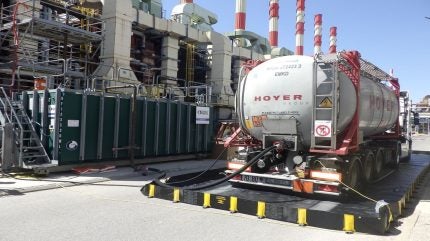
INEOS Olefins & Polymers has launched the production of recycled plastics at its facility in Lavera, southern France.
The site has received its first shipments of pyrolysis oil, a novel feedstock created from the recycling of plastic waste.
This pyrolysis oil will be employed to produce recycled polymers, assisting clients in adhering to EU regulations.
By 2030, the EU requires that food contact, medical, and sensitive plastic packaging products contain at least 10% recycled content.
The newly developed polymer grades will meet rigorous EU standards for various applications, the company said.
These include closures, milk containers, and water pipes, which necessitate high-quality recycled materials.
The pyrolysis oil will be transformed into recycled ethylene and propylene at the Lavera cracker.
These substances will subsequently be converted into virgin-quality recycled polyethylene and polypropylene at INEOS’ polymer facilities in Lavera, Sarralbe, and Rosignano.
The renewable characteristics of these products are certified under the International Sustainability and Carbon Certification scheme.
The Lavera facility, situated around 30 miles west of Marseille, is among the largest petrochemical sites in Europe. INEOS has owned the cracker and polymer plants since April 2024.
INEOS Olefins & Polymers Europe CEO Rob Ingram said: “At INEOS, we recognise that delivering a circular economy requires both ambition and action.
“While mechanical recycling remains essential, advanced recycling plays a critical role in expanding the potential for plastics recycling and closing the loop – particularly for high-performance applications.
“We are making real and tangible progress. By converting our cracker in Lavera and securing access to pyrolysis oil, we are building the capability needed to produce virgin-quality polymers from recycled feedstocks. These materials will help our customers meet the EU’s stringent regulatory targets and sustainability goals.”
The EU’s Packaging and Packaging Waste Regulation has set recycling goals for 2030 and 2040.
Advanced recycling technology reportedly fosters genuine circularity in consumer products, enabling the continuous recycling of end products.
It aims to prevent plastic waste from being disposed of in landfills or incinerated, in turn decreasing dependence on fossil-based raw materials.







